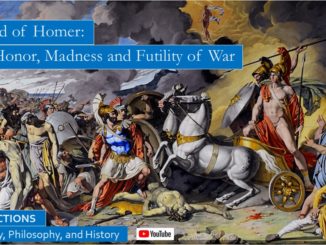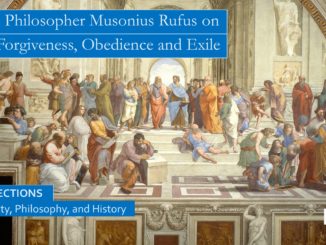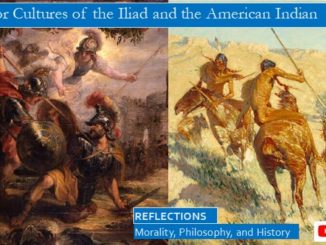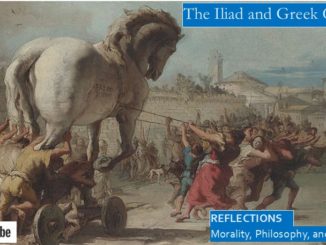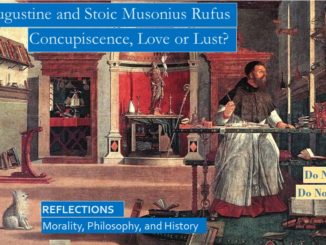
Musonius Rufus on Concupiscence and Controlling the Appetites
Many who denigrate St Augustine for his overly strict attitudes on intimacy and concupiscence do not realize that he was repeating what Stoic philosophers taught. Rufus is our best example, he criticizes “men who live luxuriously and desire a variety of sexual experiences, legitimate and illegitimate, with both women and men.” Then Rufus gives us advice that is very similar to the teachings of St Augustine: “men who are neither licentious nor wicked must consider only those intimate acts between husband and wife for the creation of children to be right and lawful, but intimate acts that chase after mere pleasure, even in marriage, to be wrong and unlawful.” What if nobody is hurt by these acts of pleasure? Rufus maintains “everyone who acts wrongly and unjustly, even if doesn’t hurt those near to him, immediately shows himself to be entirely base and dishonorable.” […]

